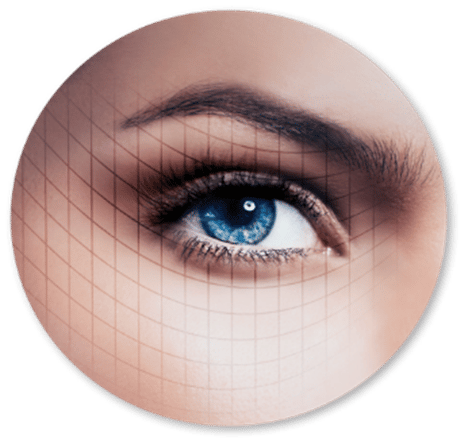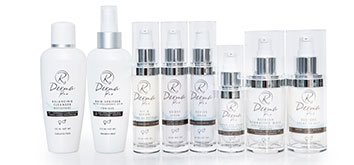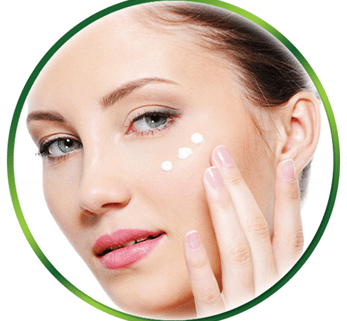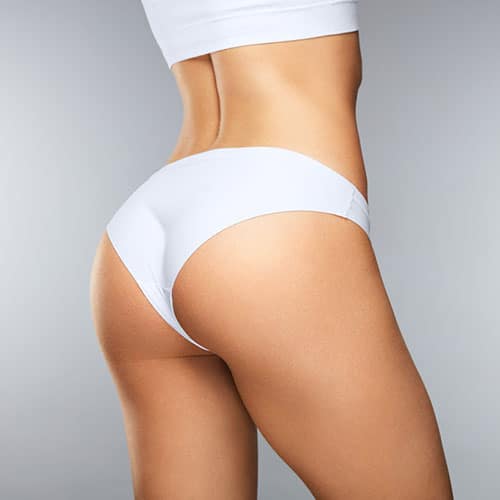Let’s talk about Eye Cream: Do you really need it?
An eye cream is precisely as stated: an EYE cream. The skin around your eyes is up to ten times thinner than the skin on the rest of your face and shows signs of aging more quickly than other areas of the face do, hence. This thinness makes it more delicate, vulnerable, and prone to allergic reactions than other facial skin. This is why the delicate skin around your eyes needs an extra dose of TLC, which a regular face moisturizer might not be able to deliver. Using a regular face cream is not ideal and could even be damaging to that delicate area.
Does this mean having an additional product on your shelf? Well, it surely does! But when you break it down and realize how different the needs of the eye area are and the ingredients that go into these products, then, it will all make perfect sense.
How is the Eye area different?
Within the area around the eye itself, the skin is very delicate. The eye-area skin does not enjoy as much natural moisture from sebum (oil), leaving it prone to laxity, developing fine lines and wrinkles, becoming looser, and even thinner.
Eye products have been specifically formulated to ensure the essential ingredients actually gives the eyes what it needs, something which a face moisturiser cannot do.
Why should you invest in an eye cream?
The skin around your eyes also gets a much greater workout. Every time you move your eyes, whether you squint, smile, or widen them in surprise, you’re using muscles around your eyes. Over time, factors like dryness and loss of collagen and elasticity lead to the formation of small wrinkles near your eyes, commonly known as ‘crow’s feet’. Smoking and exposure to the sun’s harmful ultraviolet rays can also contribute to wrinkle formation.
Incorporating an eye cream into your daily skincare routine can help minimize the appearance of these wrinkles as well as tackle other skin concerns like dryness, puffiness, dark circles, and pigmentation.
And the sooner you start using one, the better. The best time to start using an eye cream is before you think you need one. It’s easier to prevent signs of aging than to correct them, so we recommend investing in an eye cream starting in the 20’s. Applying an eye cream twice every day for optimal results.
While the cost can be exorbitant, rest assured that it’s money well spent. Because the delicate skin around our eyes is usually one of the first spots on the face to show signs of aging, sun damage, and stress. Eye creams can be an effective preventive and reparative measure for addressing all of that. So, even if you only use cleanser, moisturizer, and sunscreen, an eye cream would be a worthwhile addition to your skincare lineup.
What ingredients should you look for in an eye cream?
Some key ingredients to look for are hyaluronic acid and peptides. HA helps to hydrate while peptides boost collagen production, making your skin plumper and more youthful.
Since the skin around your eyes has very few active oil glands, hydrating ingredients like hyaluronic acid, squalene and ceramides are essential for drawing in and sealing in the moisture.
For anti-aging benefits, choose an eye cream containing retinol or a retinol derivative in a moisturizing base—look for ceramides, dimethicone, glycerin and oils in the ingredient list.
In addition, you should also consider factors like your skin type, what skin concern you wish to target, whether you’ll be layering makeup on top, etc. when picking an eye cream. So then, what ingredients should you look for in an eye cream?
Whether you want to tackle fine lines, treat dark circles, or reduce puffiness, our recommended skincare picks have got you covered:
- For dryness: Aqua Eye Cream
- For dark circles: Awaken
- For de-puffing: Awaken
- For fighting photo-damage: Colorescience Total Eye 3-in-1 Renewal Therapy
- For firming: Enhance or Aqua Eye Cream
- For dull, dry skin: Enhance or Aqua Eye Cream
- For wrinkle repair: Aqua Eye Cream
- For tackling signs of aging: Aqua Eye Cream
To save time, can I use the same anti-wrinkle eye cream for my face and under eyes?
Skin care isn’t cheap and eye products tend to be more expensive. Which raises the question: why does moisturizer marketed for your under-eyes come in a tiny tube and cost so much more? Is it really that special? And are you doing your eyes a disservice if you use regular moisturizer as eye cream?
 The answer is absolutely. Let us explain – It’s true that eye creams contain the same types of ingredients found in many face creams. However, they’re also meant to address hyper-specific skincare issues. Not only does the skin underneath your eyes require more targeted TLC (i.e., retinol for wrinkles, ingredients for puffiness, niacinamide for dark circles, etc.), it’s also a lot thinner than other areas of the face—in fact, it’s the thinnest skin on the body.
The answer is absolutely. Let us explain – It’s true that eye creams contain the same types of ingredients found in many face creams. However, they’re also meant to address hyper-specific skincare issues. Not only does the skin underneath your eyes require more targeted TLC (i.e., retinol for wrinkles, ingredients for puffiness, niacinamide for dark circles, etc.), it’s also a lot thinner than other areas of the face—in fact, it’s the thinnest skin on the body.
In other words, it’s a lot more sensitive.
Now, let’s say you were to use a regular anti-wrinkle face cream with the same targeted ingredients on your under-eyes. That anti-wrinkle cream probably contains a much greater concentration of active ingredients to combat fine lines (somewhat ironic considering that eye creams cost way more than facial moisturizers). This isn’t a bad thing for your face, which can probably tolerate that, but it might not be so great for your under-eyes, which is a more delicate space.
Eye creams tend to be gentler, less irritating, and more moisturizing than regular creams because the delicate skin around the eyes is particularly prone to irritation, fine lines, dark circles, and puffiness.
That being said, you might be able to tolerate regular anti-wrinkle creams on the eye area—if your skin isn’t very sensitive and the formulation isn’t very irritating (read: no fragrances). But proceed with caution.
As for the matter of using eye cream all over your face (Beyoncé’s makeup artist even swears by it), there’s the obvious answer. Unless you’re Beyoncé, it’s going to be an expensive affair. For the financial downside alone, we don’t recommend it as an everyday practice. Plus, you’re actually better off not using an eye cream for your whole face because your face can tolerate (and will benefit from) much higher proportions of active ingredients.
Which one is better: eye cream or eye serum?
An eye serum is lighter than a cream, contains less oil, and uses a vehicle that allows for better penetration of potent anti-aging ingredients as opposed to an eye cream. “Eye serums in general are better for wrinkles, dark circles, reduction of puffiness and help improve skin firmness.”
When should I start using an Eye Cream?
Rule of thumb: When it comes to skincare, the earlier the better. In my many years of experience as a skincare specialist, I believe it’s the one product that you won’t appreciate the use of until you stop and can actually see the effect it has had. The reality is – prevention is better than cure – when it comes to the delicate eye area.
It’s often the simple concepts of skincare that get lost in translation or that people become confused by, so we hope this has helped you understand this important concept of eye care. We also have a ton of info on our Instagram page to provide guidelines and tips.
If you have specific questions, we encourage you to please get in contact with us on (604) 696-5506 or book to have a consultation with one of our skin experts. We will work our way through a series of questions so that we are able to understand your skincare requirements, which will aid in ensuring the products we recommend are uniquely matched to these concerns.
The bonus of our R3 Derma Health skincare range is that we can custom blend our products to make sure they meet all the needs of your skin, perfectly!















